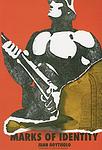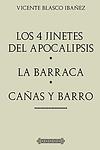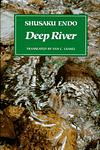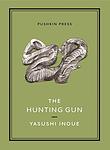The Greatest Japanese, Spanish "Social & Cultural Fiction" Books of All Time
Click to learn how this list is calculated.
This list represents a comprehensive and trusted collection of the greatest books. Developed through a specialized algorithm, it brings together 305 'best of' book lists to form a definitive guide to the world's most acclaimed books. For those interested in how these books are chosen, additional details can be found on the rankings page.
Genres
Social & Cultural Fiction is a literary category that encompasses novels and stories that delve into the complexities of society and culture, exploring themes such as class, race, gender, and identity within specific social contexts. These narratives often provide a lens through which readers can examine the intricacies of human relationships and the impact of cultural norms and societal structures on individuals and communities. By offering a fictional yet reflective portrayal of real-world social dynamics, this genre invites readers to gain a deeper understanding of the diverse experiences that shape our world. Authors in this category frequently use their characters and settings to comment on contemporary issues, challenge prevailing ideologies, and provoke thought about the possibility of social change, making Social & Cultural Fiction a powerful tool for empathy and a mirror for the ever-evolving human condition.
Countries
Date Range
Reading Statistics
Click the button below to see how many of these books you've read!
Download
If you're interested in downloading this list as a CSV file for use in a spreadsheet application, you can easily do so by clicking the button below. Please note that to ensure a manageable file size and faster download, the CSV will include details for only the first 500 books.
Download-
1. The Tale of Genji by Murasaki Shikibu
"The Tale of Genji" is a classic work of Japanese literature from the 11th century, often considered the world's first novel. The story revolves around the life of Genji, the son of an emperor, exploring his political rise, romantic relationships, and the complex court life of the Heian era. The novel is celebrated for its detailed characterization and its analysis of the different forms of love.
The 155th Greatest Book of All Time -
2. La Regenta by Clarín
"La Regenta" is a classic of Spanish literature that takes place in a small provincial town and centers around the character of Ana Ozores, a married woman who becomes the object of desire for two very different men: the town's liberal Casanova and a conservative, ambitious priest. The narrative explores themes of religion, hypocrisy, and forbidden love in a repressed society. The author's detailed depiction of the town and its inhabitants provides a vivid backdrop for the tragic love triangle that unfolds.
The 647th Greatest Book of All Time -
3. Thousand Cranes by Yasunari Kawabata
"Thousand Cranes" is a story set in post-war Japan, revolving around the life of a young man who is entangled in a complex relationship with three women. These women are linked to his deceased father and a shared tea ceremony set, symbolizing the cultural and generational tensions that exist. The narrative explores themes of love, loneliness, tradition, and the haunting burden of the past.
The 1085th Greatest Book of All Time -
4. The House of Ulloa by Emilia Pardo Bazán
"The House of Ulloa" is a novel set in rural Spain during the 19th century, following the story of a young, idealistic priest sent to a decaying country estate to reform the marquis, who is a crude and corrupt nobleman. The priest's attempts at moral reform are thwarted by his love for the marquis' mistress and the cruel, primitive society that surrounds them. The book is a critique of the decaying nobility and the moral ambiguity of the Catholic Church.
The 1107th Greatest Book of All Time -
5. Kokoro by Sōseki Natsume
"Kokoro" is a novel that delves into the complexities of human relationships and the changing cultural climate of Japan at the turn of the 20th century. The story is narrated by a young university student who forms an unlikely friendship with an older man, referred to only as "Sensei". As their bond deepens, the young man learns of Sensei's tragic past, his feelings of guilt and regret, and his struggle to find peace. The novel explores themes of loneliness, betrayal, and the moral dilemmas of modern life.
The 1159th Greatest Book of All Time -
6. The Hive by Camilo José Cela
"The Hive" is a novel set in post-Civil War Spain, during the harsh years of Madrid's postwar recovery. It provides a gritty and realistic portrayal of the struggles faced by ordinary citizens in a society marked by deprivation and repression. The narrative is non-linear and fragmented, featuring a vast array of characters from various social classes, whose lives intertwine in a depiction of the bleakness and despair of the time. The book was initially banned in Spain due to its critical view of Franco's regime.
The 1262nd Greatest Book of All Time -
7. The Twilight Years by Sawako Ariyoshi
"The Twilight Years" is a poignant story revolving around the life of a middle-aged woman who is burdened with the responsibility of taking care of her ageing and ailing father-in-law while trying to balance her work and personal life. The novel explores the themes of old age, family responsibilities, societal expectations, and the struggles of women in a patriarchal society. It offers a critical examination of the social, cultural, and personal issues related to aging and care-giving in post-war Japan.
The 1486th Greatest Book of All Time -
8. The Time Of The Doves by Merce Rodoreda
The novel is a poignant exploration of a woman's life set against the backdrop of the Spanish Civil War and the early years of Franco's dictatorship. Through the eyes of the protagonist, a shopkeeper in Barcelona, readers experience her struggles with love, loss, and survival. Her personal journey is interwoven with the turbulent history of the era, as she endures the hardships of war, the complexities of her romantic relationships, and the challenges of raising her children alone. The narrative, rich with symbolic imagery, particularly the recurring motif of doves, offers a deeply emotional and intimate portrayal of resilience amidst the chaos of societal upheaval.
The 1593rd Greatest Book of All Time -
9. Forbidden Colours by Yukio Mishima
"Forbidden Colours" is a deeply introspective novel that explores themes of beauty, youth, old age, love, and betrayal, set against the backdrop of post-war Japan. The story follows a young, beautiful man who is manipulated by an elderly writer to seek revenge on women. The young man's beauty becomes a weapon, while the old man's bitterness and jealousy drive the plot. The novel delves into the darker aspects of human nature and society's obsession with beauty, providing a stark commentary on the human condition.
The 2018th Greatest Book of All Time -
10. Black Rain by Masuji Ibuse
The novel is a poignant and detailed account of the aftermath of the atomic bombing of Hiroshima, as experienced by a Japanese family. Through the diary entries of a survivor and the narrative of the days that follow, the book explores the devastating impact of the bomb on the city's inhabitants, their struggle with radiation sickness, and the societal stigma they face. It delves into the physical and psychological trauma inflicted by the event, painting a somber picture of the human cost of war and the long-lasting effects of nuclear weapons on both individuals and communities.
The 2122nd Greatest Book of All Time -
11. Bartleby & Co by Enrique Vila-Matas
"Bartleby & Co" is a metafictional work that explores the theme of "writers of the No," authors who cease to write or never start at all. The narrator, an office worker on sick leave, uses footnotes to a nonexistent text to delve into the stories of these authors, including famous real-life figures. The book serves as a meditation on silence, refusal, and the nature of literature itself.
The 2440th Greatest Book of All Time -
12. Compassion by Benito Pérez Galdós
"Compassion" is a compelling narrative that explores the themes of poverty, compassion, and human morality. Set in 19th-century Spain, it follows the story of a wealthy woman who, after an encounter with a poor, blind beggar, is moved to reassess her life and the societal norms of the time. This chance meeting prompts her to question the established social order and her privileged position within it, leading to a profound personal transformation. This novel is a poignant exploration of human empathy and the societal structures that often hinder its expression.
The 2443rd Greatest Book of All Time -
13. Memoirs of a Peasant Boy by Xosé Neira Vilas
"Memoirs of a Peasant Boy" is a poignant narrative about the harsh realities of rural life in Galicia, Spain during the early 20th century, as seen through the eyes of a young boy. The protagonist, who is also the narrator, offers a vivid depiction of his experiences growing up in poverty, dealing with oppressive landlords, and struggling for survival and education. This autobiographical novel is a powerful commentary on social injustice and the enduring spirit of the human will.
The 2443rd Greatest Book of All Time -
14. Marks of Identity by Juan Goytisolo
This novel follows the life of Alvaro Mendiola, a Spanish man returning to his homeland after a long period of self-imposed exile in France. Through his experiences and memories, the narrative paints a vivid picture of the socio-political climate in Spain under Franco's dictatorship. As Alvaro grapples with his identity, the book explores themes of personal and national identity, exile, and the struggle for freedom.
The 2443rd Greatest Book of All Time -
15. A Personal Matter by Kenzaburō Ōe
A Personal Matter is a novel that tells the story of Bird, a young man struggling to come to terms with the birth of his son who has a severe brain hernia. As he grapples with his personal demons and the societal stigma associated with having a disabled child, he also contemplates killing his son to end his suffering. The narrative explores themes of responsibility, shame, and the human condition, ultimately leading to Bird's acceptance of his son and his own life.
The 2599th Greatest Book of All Time -
16. La Barraca by Vicente Blasco Ibáñez
This novel is a poignant portrayal of the struggles faced by a family who moves to the Valencian countryside to take over an abandoned farm, only to be met with hostility from the local community. The narrative delves into themes of social injustice, the harsh realities of rural life, and the relentless battle against nature's whims. As the family endeavors to cultivate the land and integrate into the community, they encounter resistance and sabotage from neighbors who resent their presence. The story is a vivid depiction of human resilience and the pursuit of hope amidst adversity, set against the backdrop of the fertile but unforgiving Spanish landscape.
The 2845th Greatest Book of All Time -
17. Doña Perfecta by Benito Pérez Galdós
This novel is a vivid portrayal of the clash between progress and tradition, set in a fictional Spanish town. The story centers around a young engineer who arrives with ideas of modernization and progress, only to find himself in conflict with the conservative and deeply religious values upheld by his aunt, the titular character, and the town's society. This conflict escalates into a dramatic struggle that exposes the hypocrisy, intolerance, and moral rigidity of the town, ultimately leading to tragic consequences. Through this narrative, the novel critiques the resistance to change and the destructive nature of fanaticism, reflecting broader social tensions within Spain during the 19th century.
The 2845th Greatest Book of All Time -
18. The Dancing Girl of Izu and Other Stories by Yasunari Kawabata
"The Dancing Girl of Izu and Other Stories" is a collection of short narratives that explore the intricacies of human relationships, set against the backdrop of Japan's cultural and natural landscapes. The titular story follows a young student who becomes infatuated with a traveling dancer he meets while on a trip to the Izu Peninsula. The other stories also delve into themes of love, loss, and longing, with characters often grappling with their own emotions and the societal norms of the time. The book is renowned for its lyrical prose and delicate depiction of human emotions.
The 3791st Greatest Book of All Time -
19. Child Of Fortune by Yuko Tsushima
The novel follows the journey of a single mother in her thirties navigating the complexities of independence and motherhood in modern-day Japan. Struggling against societal expectations and financial hardships, she embarks on a transformative quest for self-discovery and empowerment. As she grapples with her past and uncertain future, the protagonist's experiences illuminate the universal challenges of identity, resilience, and the search for happiness amidst life's trials. Her story is a poignant exploration of the human spirit's capacity to endure and the profound impact of personal freedom on one's destiny.
The 4029th Greatest Book of All Time -
20. Deep River by Shūsaku Endō
"Deep River" is a profound exploration of faith, suffering, and redemption, told through the intertwined narratives of four Japanese survivors of World War II. Each character carries their own personal trauma and guilt, leading them on separate spiritual journeys that converge at India's holy Ganges River. As they grapple with their pasts and seek forgiveness and meaning in their lives, the novel delves into themes of cultural clash, religious conflict, and the human capacity for love and understanding amidst pain.
The 4050th Greatest Book of All Time -
21. Teach Us To Outgrow Our Madness by Kenzaburō Ōe
This book is a collection of four novellas that delve into the complexities of human nature, exploring themes of family, madness, and the struggle for understanding in a post-war Japanese society. Through the eyes of its varied protagonists, including a father grappling with his son's disability and a man confronting his father's legacy, the narrative weaves a poignant examination of the human condition, the search for meaning, and the desire for redemption. The author's masterful storytelling and deep philosophical inquiries offer a profound commentary on the capacity for growth and the necessity of compassion in the face of life's inherent challenges.
The 4151st Greatest Book of All Time -
22. A Light Comedy by Eduardo Mendoza
"A Light Comedy" is a humorous tale set in Barcelona during the 1940s, centered around a middle-aged woman who, after losing everything in the Civil War, uses her wits and cunning to survive. She turns her apartment into a boarding house for single ladies, but when the business starts to falter, she decides to concoct a plan to marry a rich American. The novel is filled with a colorful cast of characters, and is a satirical commentary on the social and political climate of the time.
The 4474th Greatest Book of All Time -
23. Somersault by Kenzaburō Ōe
The novel explores the aftermath of a failed doomsday cult in Japan, led by two men who had prophesied an apocalypse that never occurred. After their prophecy fails, they attempt to disband the cult but struggle as their followers resist and violence ensues. The leaders try to rebuild their lives amidst the chaos, grappling with their guilt and the consequences of their actions. The book is a deep exploration of faith, redemption, and the power of belief.
The 6262nd Greatest Book of All Time -
24. The Hunting Gun by Yasushi Inoue
"The Hunting Gun" is a poignant tale set in post-war Japan, revolving around the lives of three women who unknowingly share a common bond, a man with whom they are all involved. The man's secret love affairs and the emotional turmoil they cause are revealed through letters from each of the women. The narrative explores themes of love, betrayal, and the complexities of human emotions, painting a vivid picture of the human condition and the consequences of hidden passions.
The 7168th Greatest Book of All Time -
25. Sepharad by Antonio Muñoz Molina
"Sepharad" is a compelling tapestry of narratives that weaves together stories of displacement, loss, and memory across different times and geographies. The novel explores the experiences of various characters, some historical and others fictional, who face the consequences of exile and persecution. Through their interconnected tales, the book delves into the themes of identity, the enduring impact of the Spanish Inquisition, the Holocaust, and the broader human condition of searching for belonging. The title references the Hebrew word for Spain, invoking the Sephardic Jewish diaspora and the broader sense of longing for a homeland that resonates throughout the novel.
The 8373rd Greatest Book of All Time
Reading Statistics
Click the button below to see how many of these books you've read!
Download
If you're interested in downloading this list as a CSV file for use in a spreadsheet application, you can easily do so by clicking the button below. Please note that to ensure a manageable file size and faster download, the CSV will include details for only the first 500 books.
Download






















